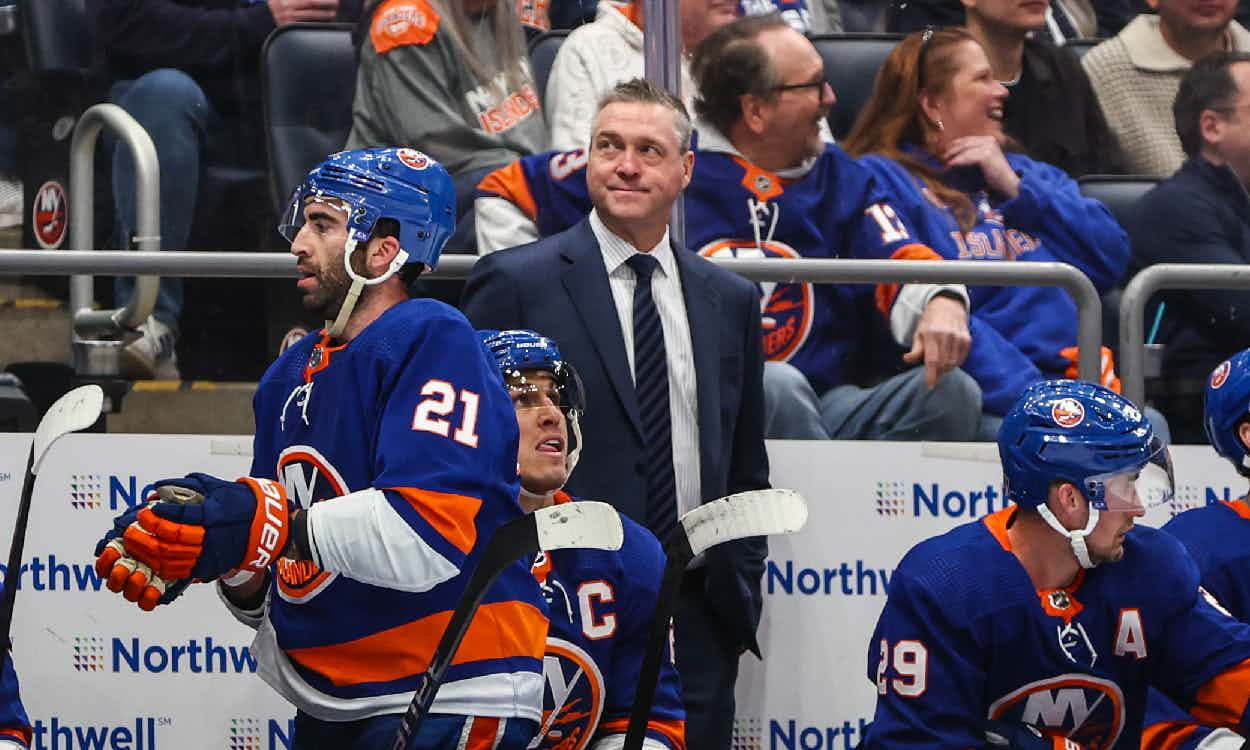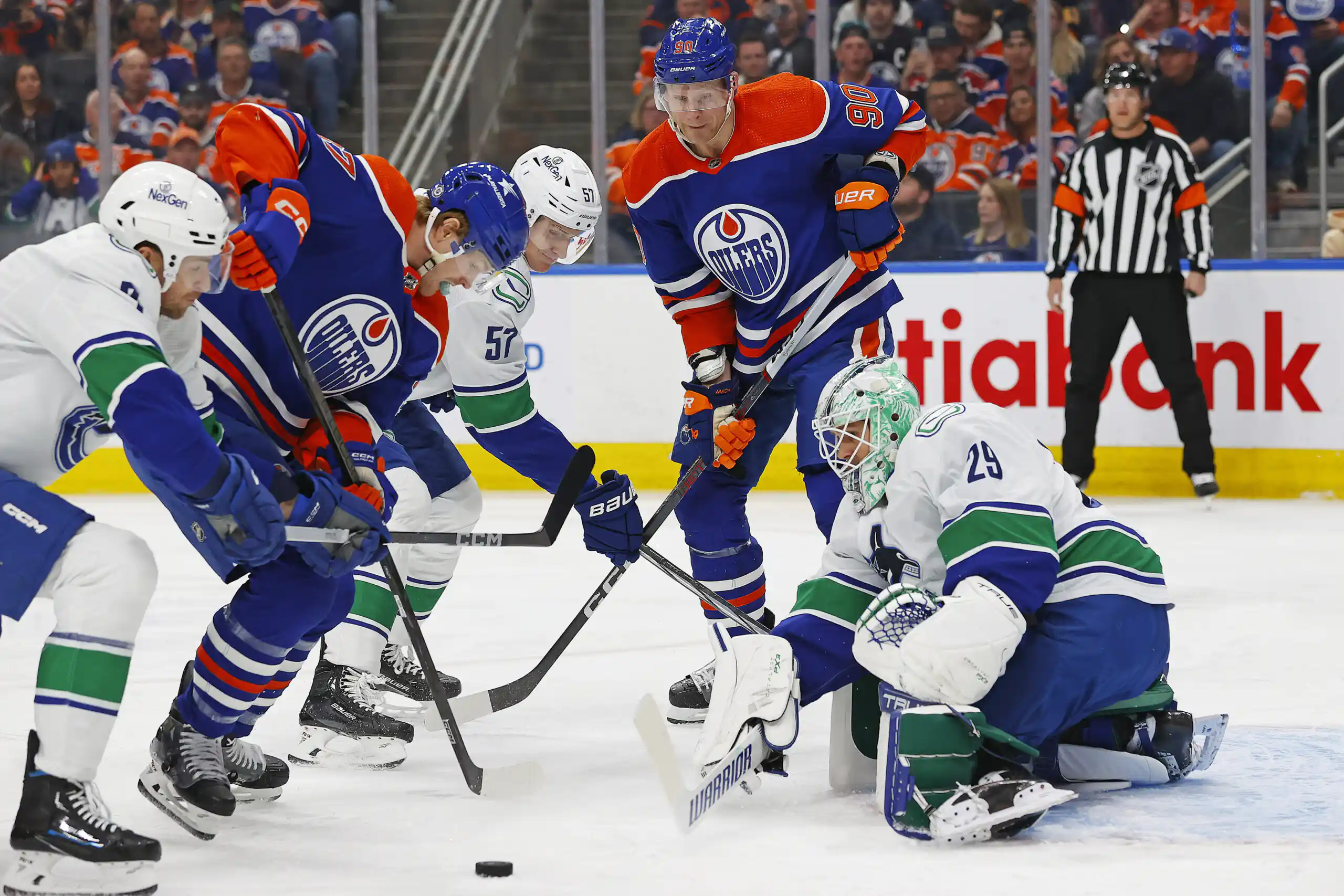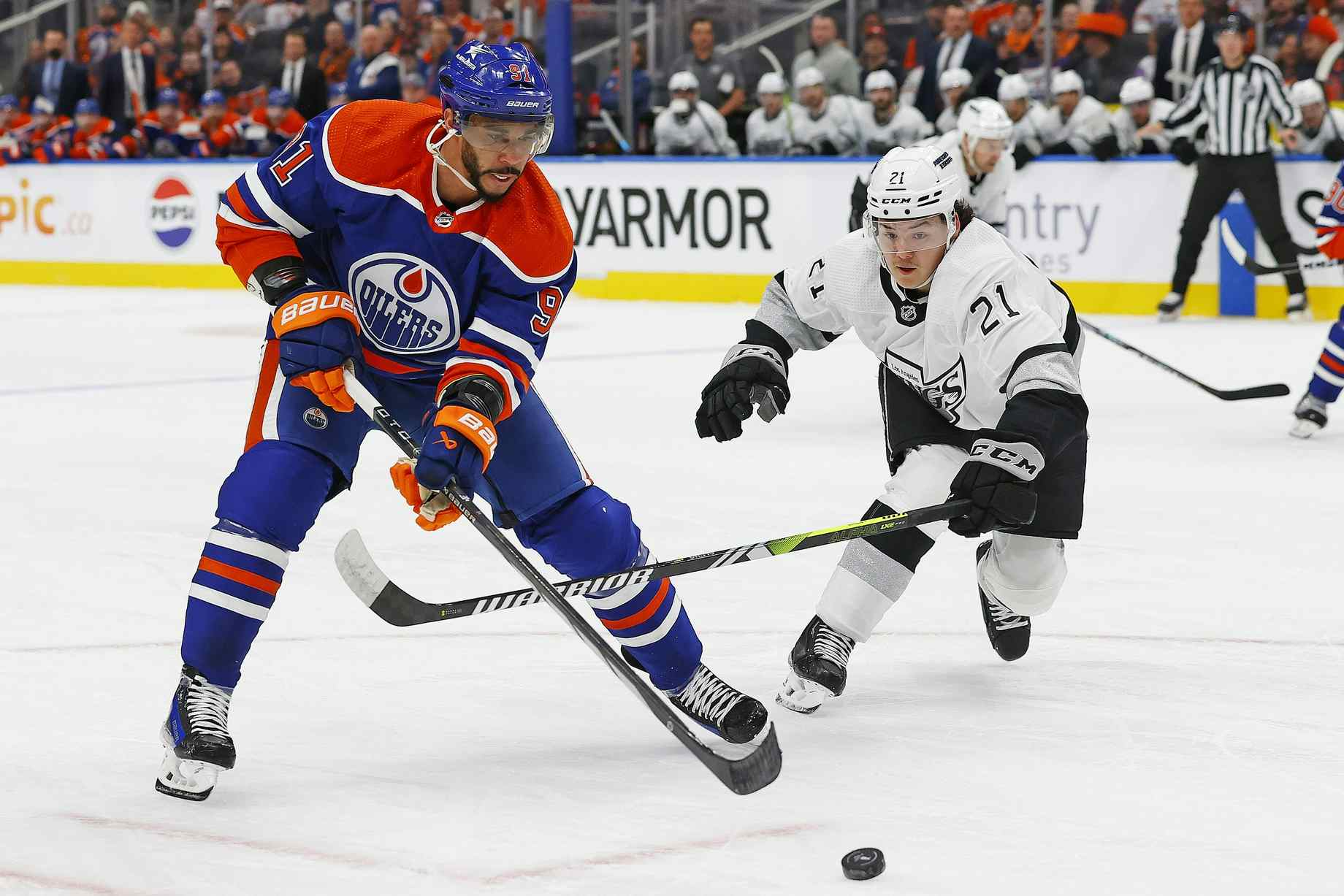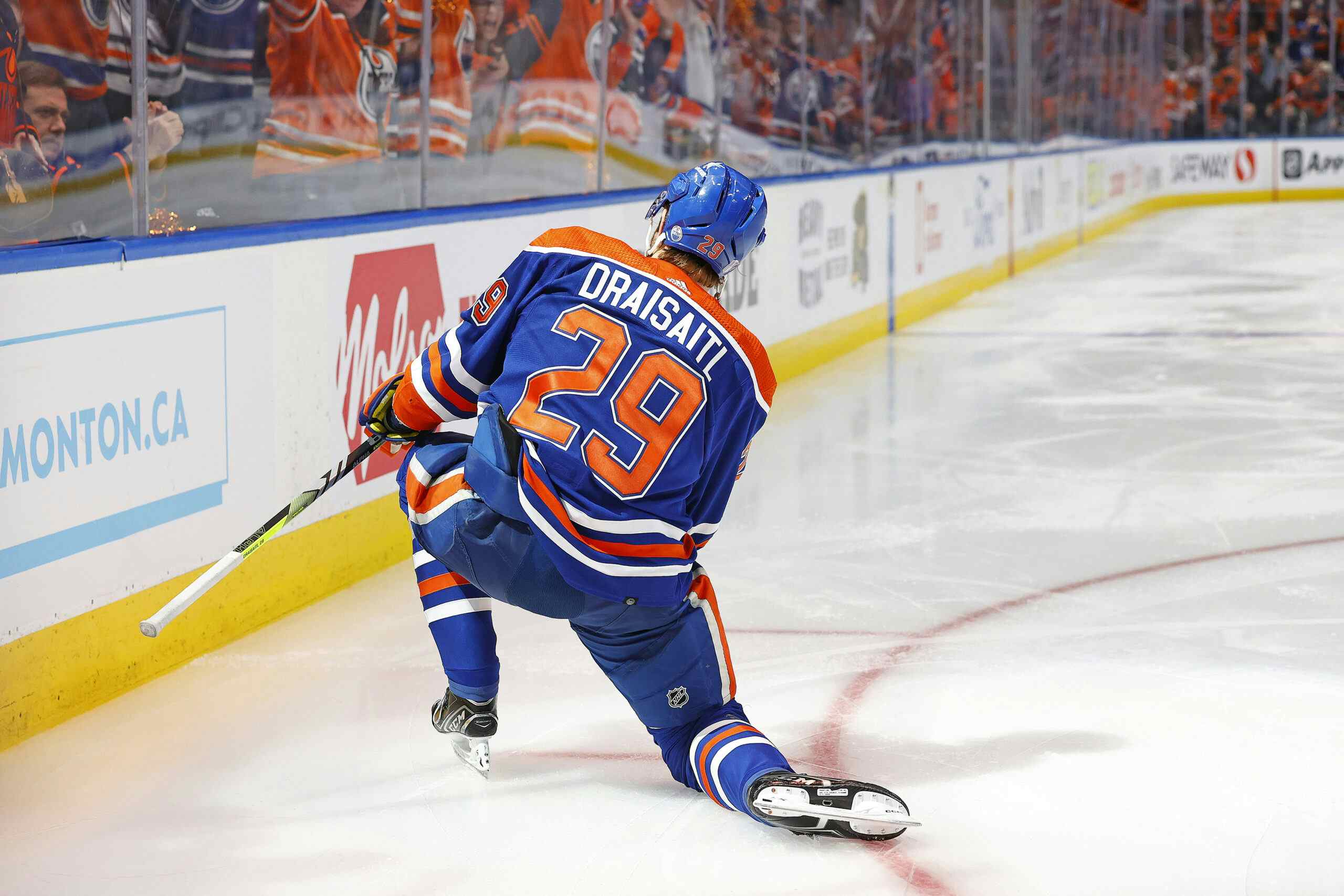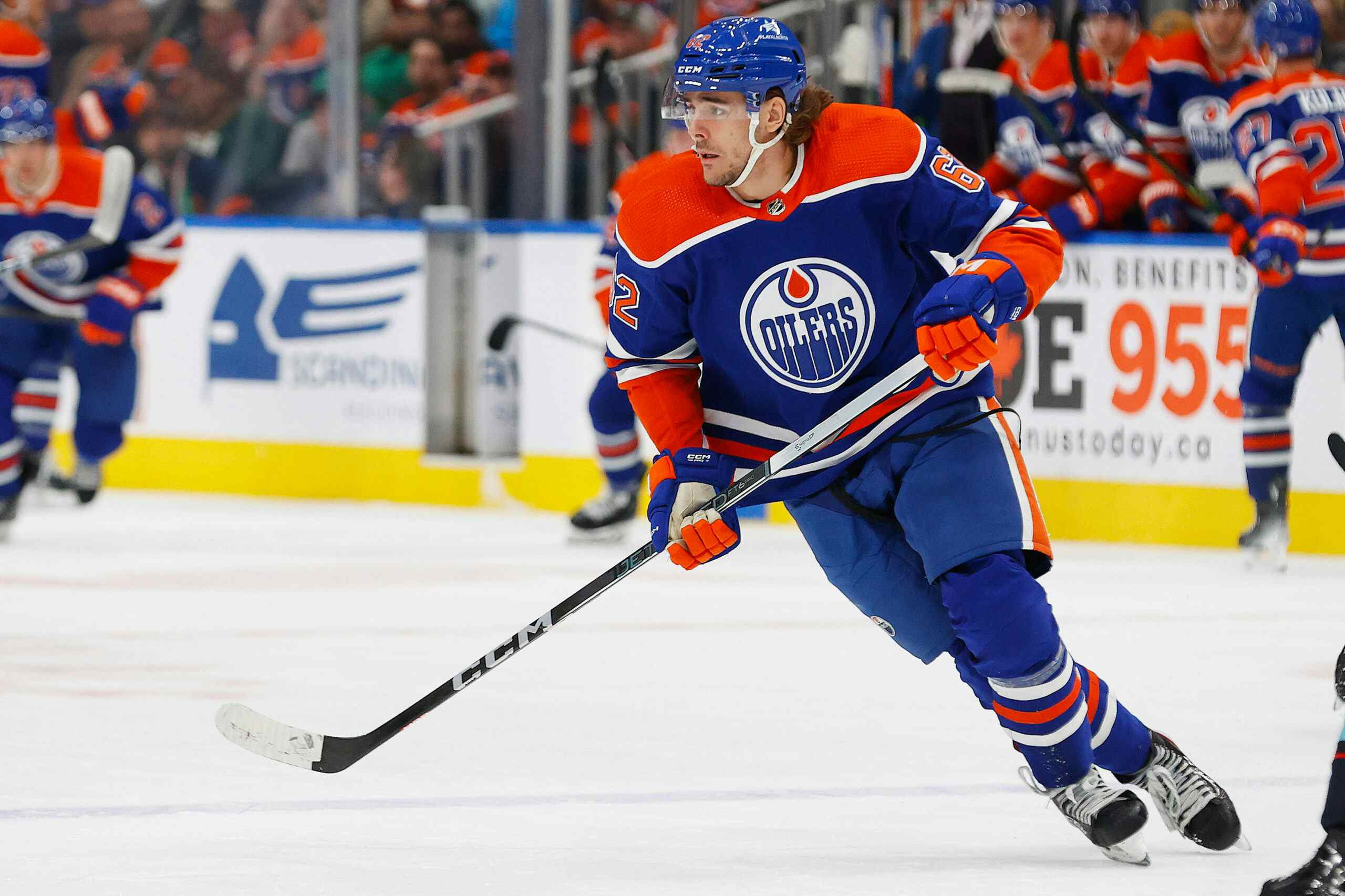Should the Edmonton Oilers extend Kris Russell?
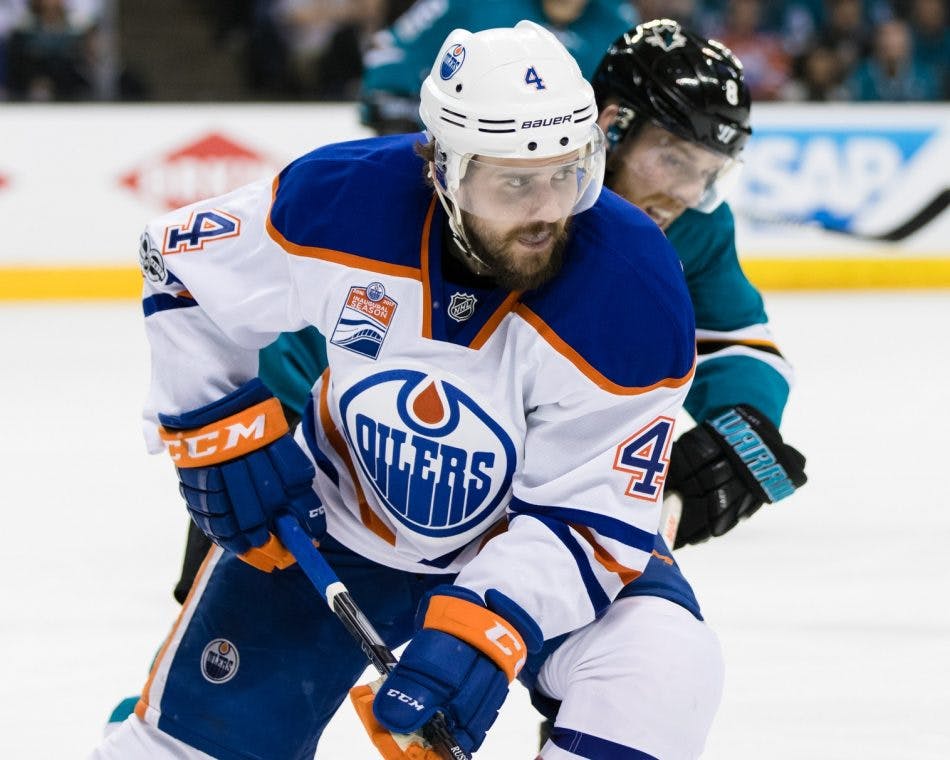
2016-17 Edmonton Oilers: No. 4 RD Kris Russell
One of the biggest questions facing the Edmonton Oilers this summer is whether or not they should re-sign Kris Russell, who was brought in on a one-year stopgap deal and played important minutes for the team in 2016-17.
The answer to that question is not something we’re all going to agree on.
To understand why Russell is so polarizing, we only really need to look at two numbers: His team’s on-ice goals and his team’s on-ice shots at 5-on-5 over his four years as a top-four defenceman.

One quick note: I’ve purposely used Fenwick here instead of Corsi. Russell is a shot-blocker par excellence, and Corsi thus consistently underrates his play. Fenwick is the same statistic, but it excludes blocked shots, thus not penalizing Russell for his proficiency in that area.
There are essentially two schools of thought, and both are compatible with Russell’s on-ice results over his career. At the risk of overgeneralizing, I’ll present them here.
The first is this: Russell is a superb defenceman in his own end of the rink; the kind of player who can boost a goalie’s save percentage and is clearly better than his shot metrics would otherwise indicate. This school of thought places a high value on Russell’s ability to get in shooting lanes and his gritty style of play.
For evidence, proponents of this view can point to those goal results. In two of the last four seasons, Russell’s on-ice goal numbers have been vastly superior to his shot metrics. One of those seasons happens to have been this past one. The opposition owned the puck when Russell was on the ice, but despite this the Oilers outscored them.
The second view is that while these discrepancies between shots and goals can occasionally happen, the vast majority of players do not possess the ability to make them happen year-in and year-out. Those that do are usually elite players (Zdeno Chara, Nicklas Lidstrom, etc.) and even in those cases the effect is smaller than most would expect. Proponents of this view may note that in two of the last four seasons, Russell’s on-ice goal totals have been a perfect reflection of his on-ice shot metrics.
This school places a lot of emphasis on the things Russell does that lead to Edmonton being outshot. He can be overly conservative at the blue line, allowing opponents to gain the zone with possession. He frequently makes ring-around-the-boards plays and desperation dumps to centre rather than clean outlet passes. Broadly speaking, he takes an ultraconservative approach to even-strength play which limits his team’s ability to get the puck to the other team’s end of the ice.
In both views, Russell is an NHL defenceman. The difference is that in the former he’s a legitimate top-four option (generally in a second pairing role), while in the latter he’s a third-pairing guy who excels on special teams. This distinction has generated endless argument between the people at either end of the spectrum, and will doubtless continue to do so next season.
Regardless of your personal leanings on which of these two players Russell actually is, three points should be relatively uncontroversial:
- Todd McLellan and his staff like Russell and see him as useful
- There are limited other options for the second-pairing right defenceman role out there, and they’ll be expensive
- Russell is highly motivated to get the security of a multiyear contract this summer
The last point is probably the most important from a negotiating perspective. Russell turned 30 earlier this month, and is at the point now where if he doesn’t get a three- or four-year contract he may never be able to get it. He’s not a player who has ever earned obscene amounts of money; this year’s one-year deal at $3.1 million was the richest of his career. He’s also mostly been stuck signing for one or two years at a time.
Now he’s coming off a good season, in a summer where there aren’t a lot of other defensive options in free agency and in which the expansion draft guarantees that some teams will have money to burn and open spots on their blue lines. It’s his last, best chance to make serious cash.
Is Russell a good enough player for the Oilers to make that kind of commitment? Or does the team need a different defenceman in his role as it pushes for a Stanley Cup next season and in the years that follow? Those are the questions that need to be answered for the team to make a decision here.
Bottom line: Russell played important minutes for a very successful Oilers team in 2016-17. Whether Edmonton should commit to him playing those minutes in future years is a question that divides fans, and no matter what the club decides some portion of the fanbase is going to be unhappy.
Previous year-end reviews:
Recent articles from Jonathan Willis

